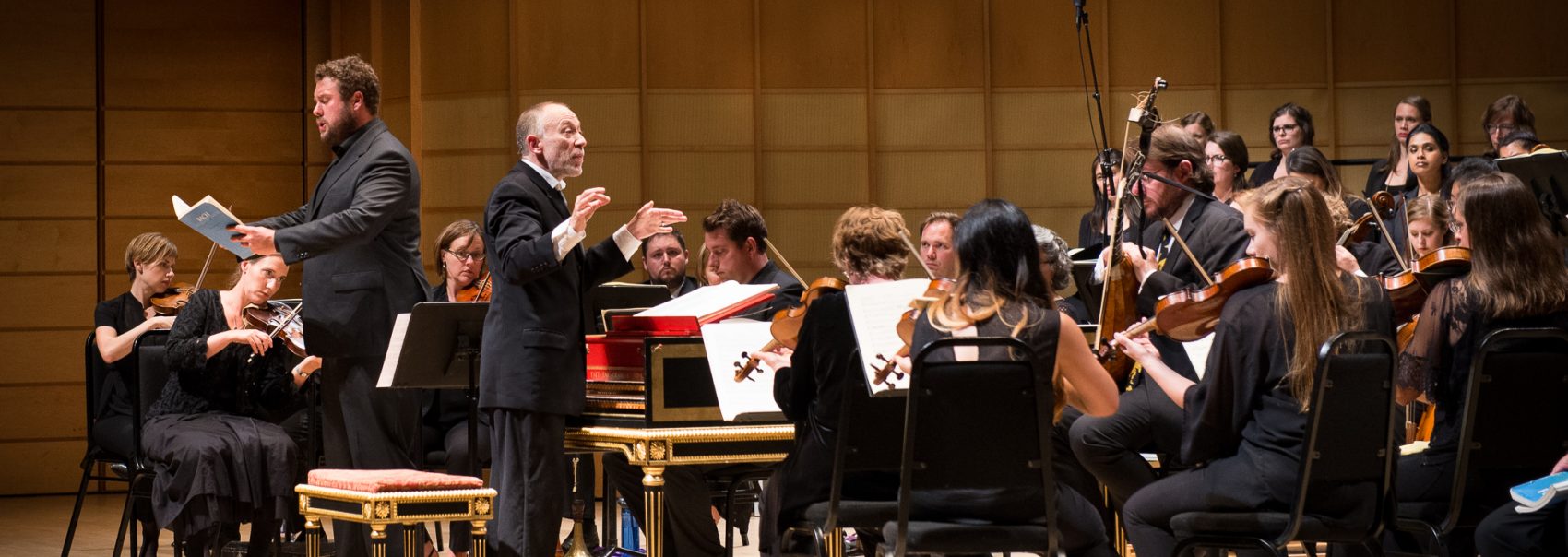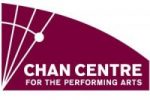Chan Shun Concert Hall at the Chan Centre for the Performing Arts | Map
Alexander Weimann, music director; Pacific Baroque Orchestra; Suzie LeBlanc, soprano; Dorothee Mields, soprano; Alex Potter, alto; Samuel Boden, tenor; Sumner Thompson, baritone; Matthew Brook, bass-baritone; Purcell Hail Bright Cecilia, alto ripieno; Jonathan Quick, tenor ripieno
The last, and greatest, of Purcell’s four Odes to the Christian saint, Hail! Bright Cecilia was composed to a text by Nicholas Brady in 1692 in honour of the feast day of Saint Cecilia, patron saint of musicians. It is a celebratory work comprised of masterful instrumental sections, majestic choruses and varied solos, duets and trios that will serve as a fitting close to the Festival. This work reveals the unparalleled richness of the composer’s musical invention and explains why, more than three hundred years later, Henry Purcell is still regarded as one of the Baroque period’s greatest composers.
On Alexander Weimann conducting Purcell: “collegial, collaborative music-making of the highest level.” – The Vancouver Sun
To view/download this programme, please click here.
This concert is generously supported by the Drance Family, Bryan & Gail Atkins, Adèle Lafleur, and the Mary and Gordon Christopher Foundation
PROGRAMME
Matthew Locke (1621-1677):
Excerpts from “The Tempest”
Introduction
Galliard, Gavot, Sarabande, Lilk
Curtain Tune
John Blow (1649-1708):
Welcome, Every Guest
Matthew Locke
Excerpts from “The Tempest”
Rustick Air, A Martial Jigge
Conclusion
INTERVAL
Henry Purcell (1659-1695):
Hail, Bright Cecilia
Symphony
Hail! Bright Cecilia
Hark, each Tree its silence breaks
‘Tis Nature’s Voice
Soul of the World
Thou tun’st this World below
With that sublime Celestial Lay
Wondrous machine!
The Airy Violin
In vain the Am’rous flute
The Fife and all the Harmony of War
Let these amongst themselves contest
Hail! Bright Cecilia
Programme Notes
“The Lovers of Music, where of many are Persons of the first Rank, meet at Stationers-Hall in London, not thro’ a Principle of Superstition, but to propagate the advancement of that divine science. A splendid Entertainment is provided and before it is always a performance of Music by the best Voices and Hands in town; the Words, which are always in the Patronesses praise, are set by some of the greatest Masters in Town.”
A Gentleman’s Journal
The person of Saint Cecilia and her association with music is shrouded in mystery. She had been venerated among the saints since the fifth century, but only began to be regularly identified as patroness of music in the sixteenth century. The first documented music festival held in her honour occurred in Normandy in 1570. In 1585, Sixtus V established one of the oldest musical institutions in the world, the Accademia Nazionale di Santa Cecilia, issuing a papal bull invoking Gregory the Great and Saint Cecilia as the two saints most prominent in the history of western music. Yet, it was in Protestant Restoration England that the celebration of Saint Cecilia flourished especially colourfully. Between the years 1683 and 1703, the Musical Society of London hosted annual festivities including a service at St. Bride’s Church featuring an anthem for choir and orchestra and a sermon in defense of music, followed by a performance at Stationer’s Hall of a newly composed ode in praise of music.
The celebratory ode, a genre of formal lyric poetry borrowed from antiquity, had become extremely popular in the court of Charles II. The times were unsettled; the monarchy newly re-established amid persistent conflicts over succession and religion. The ode served to express political power and loyalty, linking the security of the developing British nation to the king and his divinely ordained authority. Ancient Greece and Rome were often elevated as models for the modern state. Odes written in praise of Saint Cecilia similarly connected English artistic achievement with Cecilia’s patronage and with divine blessing. She became a secular figurehead, conflated with the muses of antiquity.
Further, the texts of the Cecilian odes, always commissioned from Britain’s greatest poets, elevated music, particularly the collaborative process of music-making, as a model for the creation of a healthy civil society. Music unified the arts and sciences, involving diverse disciplines from poetry to instrument technology. Ensemble music harmonized the varied timbres and abilities of instruments and voices. Musical composition knit together a range of influences – music theories traced from antiquity, traditions of musical genre and style, the composer’s own inspiration… Emulating, adapting, reworking, or enriching existing music and text was, in fact, privileged over conspicuous originality. Artists situated themselves and their work within community. So, Nicholas Brady’s text Hail! Bright Cecilia (1692) reworks John Dryden’s famous poem A Song for St. Cecilia’s Day (1687), and Henry Purcell’s setting of Brady’s text dialogues with the Ode for St. Cecilia’s Day (1691) composed by his teacher John Blow.
Hail! Bright Cecilia (1692) is a kaleidoscopic exploration of the power of music to move the emotions. Purcell uses an exceptionally large orchestra and all sorts of combinations of vocal solos, duets, trios, and choruses to paint the purported universal power and cosmic significance of music and the characters associated with different instruments and musical genres. The piece concludes with a bass duet and chorus encouraging the unity of disparate instruments and human voices with the music of Saint Cecilia and her heavenly ensemble.
Matthew Locke’s incidental music for The Tempest formed part of a similarly exemplary collaborative project. During the 1650s, the Commonwealth government forbade spoken theatre, though musical performances remained permissible. Lovers of Shakespeare “operatized” his plays as a way of circumventing the restrictions, and the new genre proved a winning combination of excellent spoken drama with music and spectacle. The most successful of these pieces was the reimagining of Shakespeare’s The Tempest, premiered in 1674. Poet John Dryden and playwright William Davenant revised the play line by line, modernizing the language and incorporating references to contemporary politics and recent scientific discoveries. Matthew Locke provided instrumental music, including the Curtain Tune, a realistic depiction of the storm so central the play’s plot, while Pelham Humphrey, Pietro Reggio, and John Banister all contributed vocal music.
Perhaps, amid the fantasy and myth associated with the Cecilia Day celebrations of the seventeenth century, there is a timely reminder for us too about music’s potential to model unity and to create links across the span of history. The hope that Nicholas Brady expressed in his sermon for St. Cecilia’s Day of 1697 remains rather poignant. “Peace then is restored to us within our Walls, Peace, that Banisher of Discord, that Mother of Harmony, that Band of Union to consenting Minds, that Nurse and Patroness of useful Arts and Sciences. And O! That all the several parties in this kingdom, however formerly divided by interest or design, would Resemble the Trumpeters and Singers in the Text! That they were as one!”
— Notes by Christina Hutten
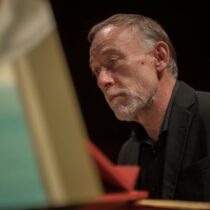
Alexander Weimann, music director
Alexander Weimann is one of the most sought-after ensemble directors, soloists, and chamber music partners of his generation. After travelling the world with ensembles such as Tragicomedia, Cantus Cölln, the Freiburger Barockorchester, Gesualdo Consort and Tafelmusik, he now focuses on his activities as Music Director of the Pacific Baroque Orchestra in Vancouver, Music Director of the Seattle Baroque Orchestra, and regular guest conductor of ensembles including the Victoria Symphony, Symphony Nova Scotia, Arion Baroque Orchestra in Montreal and the Portland Baroque Orchestra.
Alex was born in Munich, where he studied the organ, church music, musicology (with a summa con laude thesis on Bach’s secco recitatives), theatre, mediæval Latin, and jazz piano, supported by a variety of federal scholarships. From 1990 to 1995, he taught music theory, improvisation, and Jazz at the Munich Musikhochschule. Since 1998, he has been giving master classes in harpsichord and historical performance practice at institutions such as Lunds University in Malmö, the Bremen Musikhochschule, the University of California (Berkeley), Dartmouth College (New Hampshire), McGill University, Université de Montréal, and Mount Allison (New Brunswick). He now teaches at the University of British Columbia and directs the Baroque Orchestra Mentorship Programme there. He has received several JUNO and GRAMMY Award nominations – most recently, for the album Nuit Blanches with the Pacific Baroque Orchestra and Karina Gauvin.
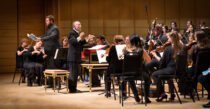
Pacific Baroque Orchestra
The ‘house band’ of Early Music Vancouver, The Pacific Baroque Orchestra (PBO) is recognized as one of Canada’s most exciting and innovative ensembles performing “early music for modern ears.” Formed in 1990, the orchestra quickly established itself as a force in Vancouver’s burgeoning music scene with the ongoing support of Early Music Vancouver. In 2009, PBO welcomed Alexander Weimann as Director. His imaginative programming, creativity and engaging musicianship have carved out a unique and vital place in the cultural landscape of Vancouver.
PBO regularly joins forces with internationally-celebrated Canadian guest artists, providing performance opportunities for Canadian musicians while exposing West Coast audiences to a spectacular variety of talent. The Orchestra has also toured throughout BC, the northern United States, and across Canada. Their 2019 East Coast Canadian tour with Canadian soprano Karina Gauvin culminated in a critically acclaimed album, Nuit Blanches, released by Atma Classique.
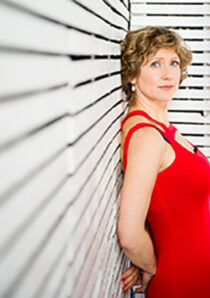
Suzie LeBlanc, soprano
Born in Acadia, the charismatic soprano provides convincing evidence for the popularity of Early Music while exploring French art song, lieder, contemporary repertoire, and Acadian traditional music. She has performed on famous stages of the world in recitals and opera and has made over 60 recordings ranging from medieval to contemporary music.
Many of her recordings received international praise and prestigious awards, notably a Grammy award for Lully's Thésée and several Opus awards. In addition to her passion for Early Music, she is an advocate for Canadian contemporary music. Her album “I am in need of music” on poems by Elizabeth Bishop won ECMA’s Best Classical Album and her album “mouvance”, which unites the words of 13 contemporary Acadian poets to the music of Jérôme Blais, was nominated for a JUNO in the category album of the year – solo artist, in 2024. Her most recent album with the Viadana Collective explores the sacred works by Lodovico Viadana and was released on May 1st, 2024, on the Passacaille label.
Appointed to the Order of Canada in 2015, she was recently awarded the rank of Knight of the Order of Arts and Letters from the French Republic. As the Artistic and Executive Director of Early Music Vancouver, she enjoys presenting a wide range of artists in the field of historical performance and welcomes the opportunity to sing from time to time.
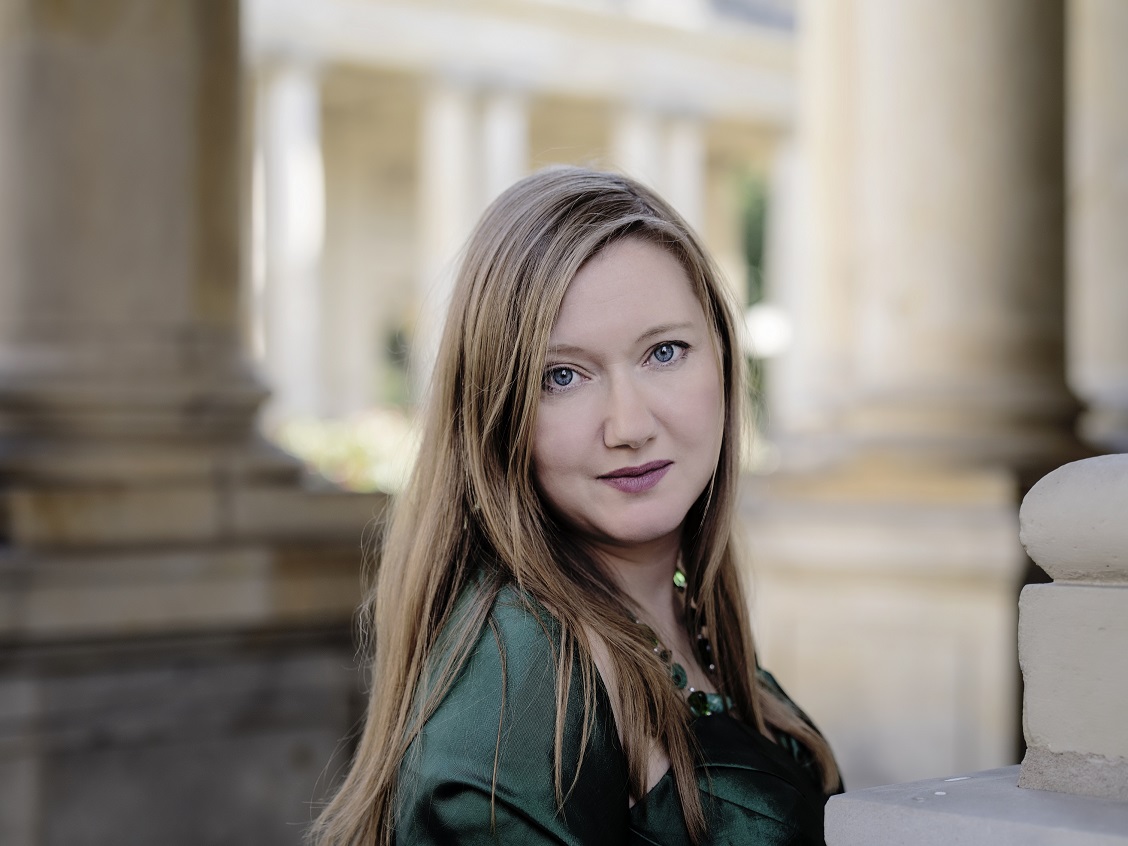
Dorothee Mields, soprano
Dorothee Mields is one of the leading interpreters of 17th- and 18th-century music and is beloved by audiences and critics alike for her unique timbre and moving interpretations.
She appears regularly with the Collegium Vocale Gent, Netherlands Bach Society, L’Orfeo Barockorchester, Freiburger Barockorchester, RIAS Kammerchor, Bach Collegium Japan, Orchestra of the 18th Century, Lautten Compagney Berlin, Tafelmusik Baroque Orchestra Toronto, The English Concert and Klangforum Wien under conductors such as Stefan Asbury, Beat Furrer, Michi Gaigg, Paul Goodwin, Philippe Herreweghe, Emilio Pomàrico, Hans-Christoph Rademann, Andreas Spering, Masaaki Suzuki and Jos van Veldhoven.
Dorothee Mields is a welcome guest at international festivals, including the Leipzig Bach Festival, Suntory Music Foundation Summer Festival in Japan, Boston Early Music Festival, Flanders Festival, Wiener Festwochen, the Handel Festival in Halle, Musikfestspiele Potsdam, Styriarte Graz, Niedersächsische Musiktage, Musikfest Bremen, Mainzer Musiksommer and Mosel Musikfest.
She is a devoted chamber musician and offers a range of highly interesting projects such as “Lord Nelson at the river Nile” (music by Haydn and contemporaries dealing with the battles of Lord Nelson), “White as Lillies was her Face” with songs by John Dowland combined with texts by Heinrich Heine, “Mort exquise, mort parfumée” with French impressionistic compositions, “Duft und Wahnsinn” (fragrance and lunacy) together with Hille Perl, viola da gamba, and Lee Santana, lute, as well as “Birds” with flutist Stefan Temmingh.
A steadily growing discography with several award-winning recordings documents her artistic achievements. “Inspired by Song” and “Birds” with Stefan Temmingh, “Handel” with Hille Perl, Monteverdi “La dolce vita” with the Lautten Compagney Berlin and Wolfgang Katschner (all DHM), Bach “Kantaten für Solo-Sopran” with L’Orfeo Barockorchester and Michi Gaigg and Boccherini Stabat mater with the Salagon Quartett (both Carus) have been especially well received.
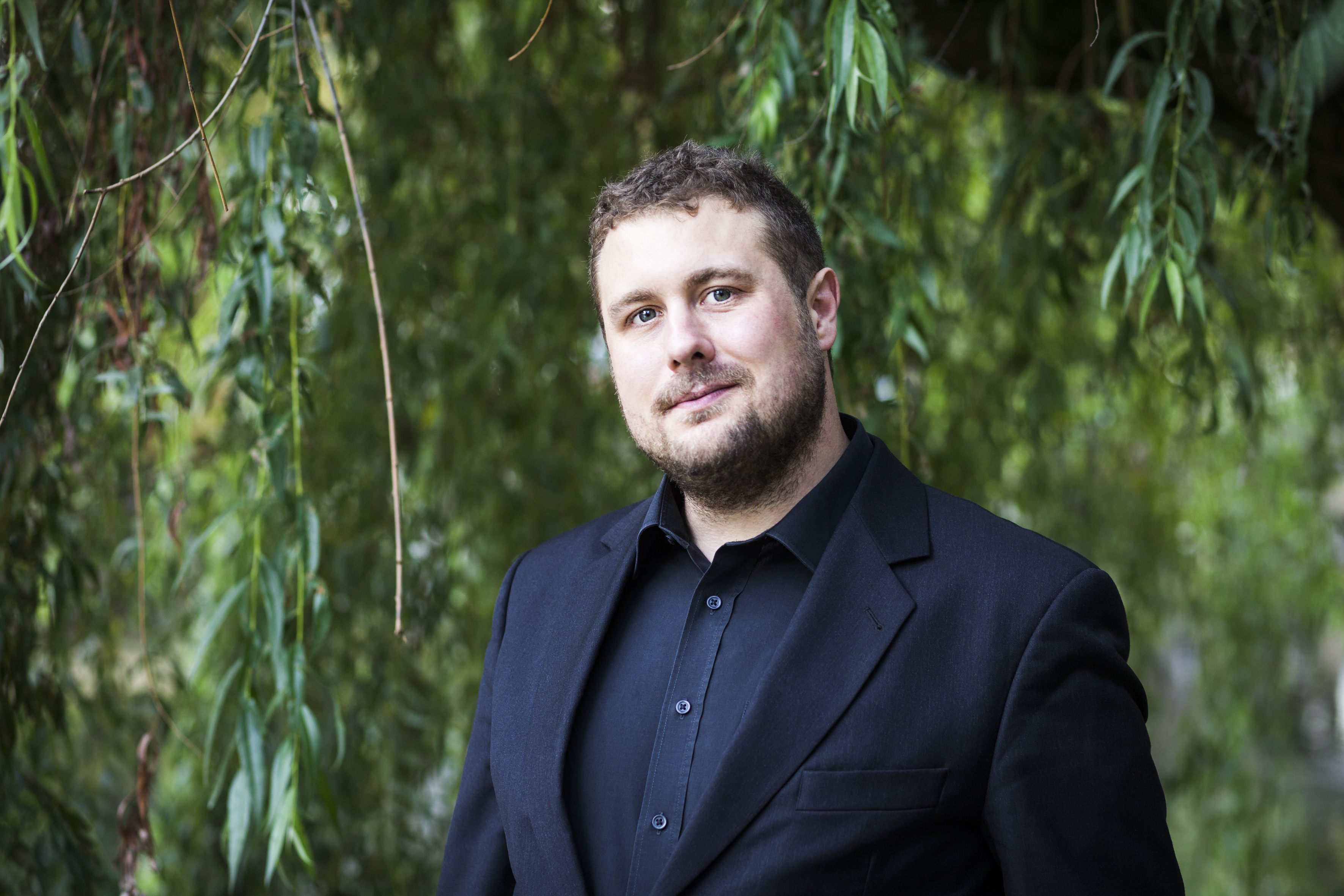
Alex Potter, alto
My mother always sang to me when I was a small child, which is why I began to sing. Her voice for me was intensely bound together with emotion, which will always remain with me. As a cathedral chorister, this emotional basis became intertwined with a fascination for text and symbolism in music, expanded upon and deepened during studies in Oxford and Basel. Remaining faithful to these origins over nearly twenty years in the profession, I continue to develop as a singer, musician and human, changed and enriched by the joy and sadness which life brings.
Nowadays you are most likely to hear me somewhere with Bach, although I also love to sing other music. When not performing, you will find me at home with my family, reading something geeky, wasting time on the internet, or cooking. Sharing and exchanging with other people, be it music, food, or conversation, is one of the great pleasures of life.
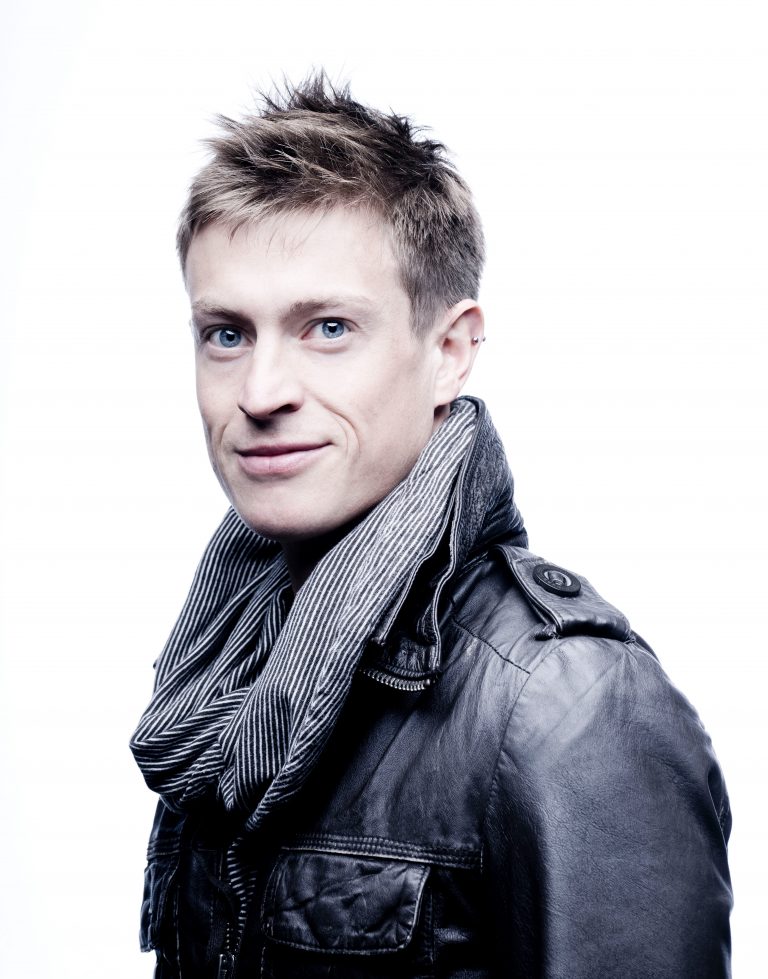
Samuel Boden, tenor
Having originally trained and worked as a chef, British tenor Samuel Boden changed his career path and studied singing under John Wakefield at Trinity Laban Conservatoire. He received numerous awards including the Ricordi Opera Prize and the Derek Butler London Prize as well as awards from the Harold Hyam Wingate Foundation, the Samling Foundation and the Arts and Humanities Research Council.
Throughout college and after leaving in 2008, he worked extensively in the UK and internationally with many leading ensembles, including Ex Cathedra, The Gabrieli Consort, The Sixteen and the Orchestra of the Age of Enlightenment. He has since become increasingly in demand as a soloist, which has led to a variety of experience, both on the concert platform and on the opera stage, performing music from a wide range of styles and eras. This ranges from Roman laments and Elizabethan lute songs, through to West Side Story for the 50th Anniversary World Tour – however, his grounding in choral music has contributed to his deeper involvement with, and love for, early music, and he has performed operas and concerts of this repertoire extensively at home and abroad. Early opera engagements include The Fairy Queen for Theater St Gallen and Glyndebourne; Anfinomo The Return of Ulysses for English National Opera at the Young Vic; The Indian Queen at Opéra Théâtre de Métropole, Metz and the title role of Cavalli L’Ormindo for the Royal Opera/Shakespeare’s Globe collaboration in their inaugural season at the Sam Wanamaker Playhouse.
Samuel’s love of languages, most notably French, has led to an interest in French Baroque. As a high light lyric tenor, he has been exploring the “Haute Contre” repertoire and enjoys a busy schedule of such performances. This repertoire has included the title role in Charpentier Actéon for Opéra de Dijon and Opéra de Lille / Emanuelle Haïm; Hippolyte Hippolyte et Aricie with Ensemble Pygmalion / Raphäel Pichon, and Abaris Les Boréadeswith Les Musiciens du Louvre / Marc Minkowski at the Aix en Provence festival.
On the concert platform Samuel has appeared with the BBC Symphony Orchestra for Zemlinsky with John Storgards, Argento with Giancarlo Guerro and Carl Rütti with Stephen Jackson; Stravinsky with Sakari Oramo at The Proms; the Hallé Orchestra / Robert Howarth for Messiah; the Royal Northern Sinfonia / Thomas Zehetmair for Mozart and Britten; the Bournemouth Symphony Orchestra / Curnyn – Handel; the Bilbao Symphony Orchestra / Howarth; the Frankfurt Radio Orchestra / Emmanuelle Haïm for Rameau and Purcell; Kristiansand Symphony Orchestra / Nicholas Kraemer with Bach and Handel; The Monteverdi Choir / John Eliot Gardiner for Bach; Collegium Vocale Gent / Philippe Herreweghe with Lassus, Monteverdi and Purcell; Le Concert d’Astrée / Haïm for Monteverdi and Charpentier and Ex Cathedra / Jeffrey Skidmore – Bach, Carissimi, Charpentier.
In current recital programmes Samuel performs lute song repertoire with Paula Chateaueuf and Britten, Fauré, Debussy and Hahn with Iris Torossian, harp. Samuel’s growing discography encompasses works by Monteverdi, Charpentier, Daniel Purcell, Rameau, Bach alongside Tansy Davies and Alec Roth on Hyperion, Erato, Archiv, OAE Released, Nimbus, Resonus Classics, NMC and Signum.
Amongst his recent and forthcoming engagements are Bach with the Rotterdam Philharmonic / Natalie Stutzmann, the title role Rameau Pigmalion with Pinchgut Opera Sydney, Telemaco Il Ritorno d’Ulisse in Patria at The Round House for the Royal Opera House and creating a role in George Benjamin’s Lessons in love and violence at the Royal Opera House, Covent Garden followed by performances in Amsterdam, Hamburg, Lyon and Paris.
Outside of his performance life, Samuel is an extreme sports enthusiast and enjoys snowboarding, rock climbing and downhill mountain biking.
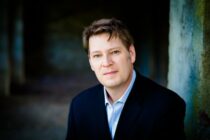
Sumner Thompson, baritone
Praised for his “elegant style” (The Boston Globe), Sumner Thompson is one of today’s most sought-after baritones. He has performed across North America and Europe as a soloist with renowned ensembles such as Concerto Palatino, Tafelmusik, Apollo’s Fire, Les Boréades de Montréal, Les Voix Baroques, the King’s Noyse, Mercury Baroque, and the symphony orchestras of Charlotte, Memphis, and Phoenix. Recent highlights include Monteverdi’s Vespers of 1610 and the new Vespers of 1640 with the Green Mountain Project; Buxtehude’s Membra Jesu Nostri with Les Voix Baroques and Houston’s Mercury Baroque; Mozart’s Requiem at St. Thomas Church in New York City; a tour of Japan with Joshua Rifkin and the Cambridge Concentus; and Britten’s War Requiem with the New England Philharmonic. He most recently appeared with EMV last year in From War to Peace: Heinrich Schurz and His Time (November) and Festive Cantatas: JS Bach Magnificat (December).

Matthew Brook, bass-baritone
Matthew Brook has appeared widely as a soloist, and has worked extensively with conductors such as Sir John Eliot Gardiner, Richard Hickox, Sir Charles Mackerras, Harry Christophers, Christophe Rousset, Paul McCreesh and Sir Mark Elder, and many ensembles including the Philharmonia, LSO, the St Petersburg Philharmonic,the RPO, Freiburg Baroque Orchestra, Orchestra of the Age of Enlightenment, the English Baroque Soloists, the Gabrieli Consort & Players, the Sixteen, the Royal Northern Sinfonia and Orchestre National de Lille.
Recent and future highlights include Purcell’s The Fairy Queen and Dido and Aeneas with the Handel and Haydn Society, Bach’s St John Passion with the St Paul Chamber Orchestra, Haydn’s Creation with the City of Birmingham
Symphony Orchestra, Bach’s Magnificat and Brahms’ Triumphlied with the Cincinnati Symphony Orchestra, Il Re di Scozia Ariodante with the Staatstheater Stuttgart and on tour with the English Concert, Bach’s B minor Mass at the Al Bustan Festival in Beirut and with Les Violons du Roy in Québec, Fauré’s Requiem with the Royal Philharmonic Orchestra, Mozart’s Requiem with the Fryderyk Chopin Institute in Warsaw, a tour of Bach cantatas with the Monteverdi Choir and Sir John Eliot Gardiner, and with the Nederlandse Bachvereniging and Early Music Vancouver, a tour of Bach’s St Matthew Passion with the Orchestra of the Age of Enlightenment, and with Gli Angeli Genève, Elgar’s The Dream of Gerontius with the Indianapolis Symphony Orchestra, Tippett’s A Child of Our Time at Festival St Denis, and the roles of Herod and Father in Berlioz’s L’Enfance du Christ with the Melbourne Symphony Orchestra and Sir Andrew Davis.
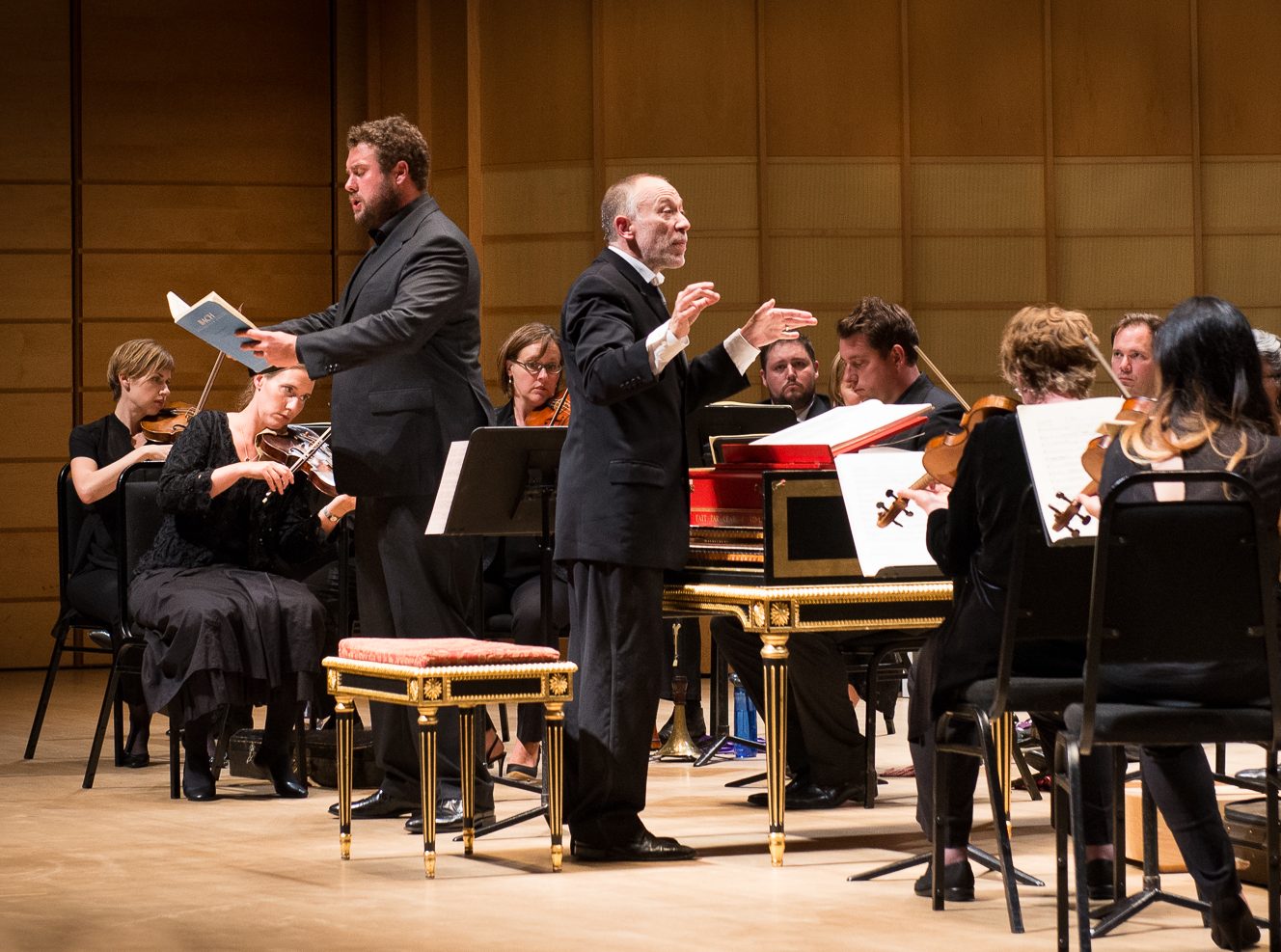
Purcell Hail Bright Cecilia, alto ripieno
Jonathan Quick, tenor ripieno
JONATHAN QUICK has been a prominent part of the Vancouver choral music scene for many years. He received his B.Mus and B.Ed degrees from UBC, studying voice with David Meek. His wide range of musical interests has allowed him to work as a conductor, composer and arranger, sound engineer, music typesetter, and singer. He has directed vocal workshops with ensembles of all ages and experience levels, and currently directs the Vancouver Welsh Men’s Choir and the Gallery Singers.
Jonathan has been featured on numerous recordings with local ensembles, and has appeared as a soloist with the Vancouver Chamber Choir, the Vancouver Cantata Singers, the West Coast Mennonite Chamber Choir, the Pacific Baroque Orchestra, Kawasha’s Crew, the Burney Ensemble, Early Music Vancouver, and New Music Vancouver.

